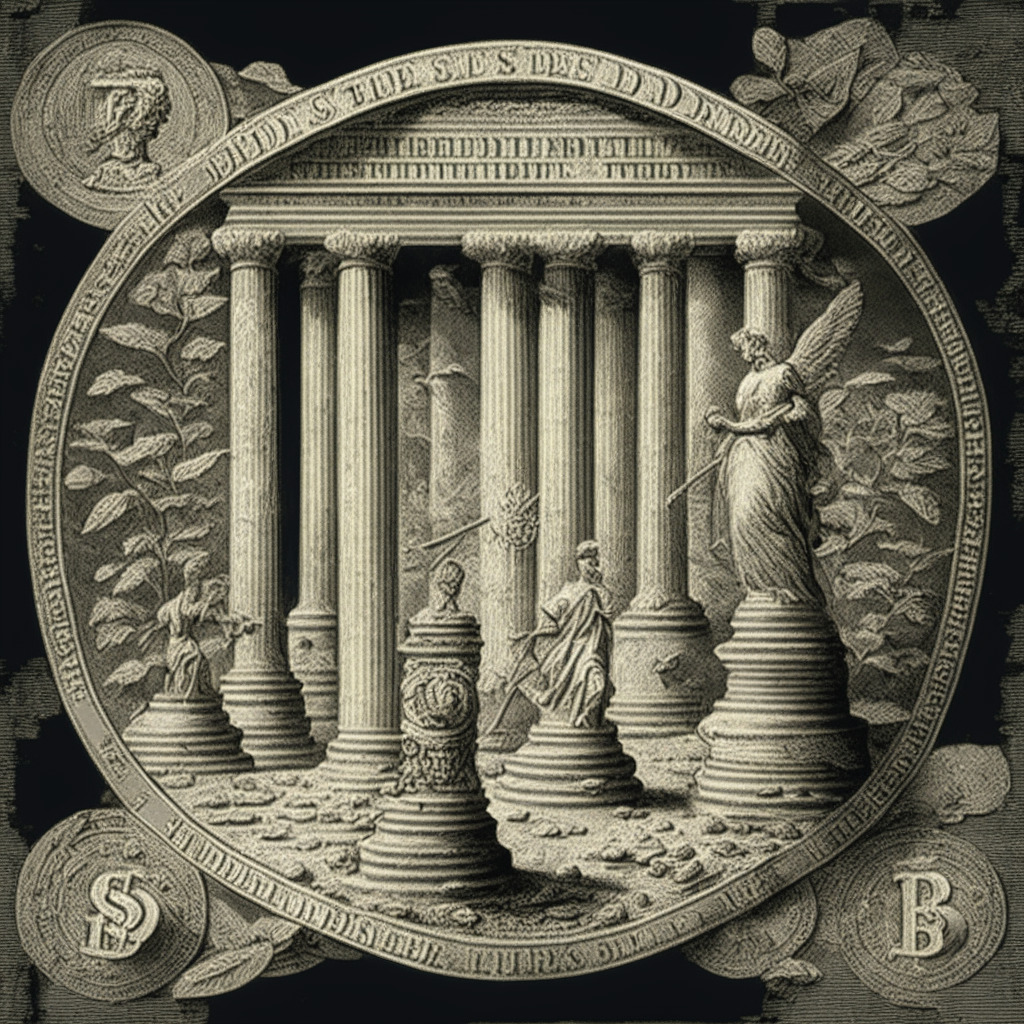“India’s Prime Minister Narendra Modi calls for global collaboration in cryptocurrency regulation at the G20 summit. India, holding the G20 presidency, advocates for a global framework for managing cryptocurrencies, mirroring the universal guideline strategies of the aviation industry.”
Search Results for: International Monetary Fund
Cryptocurrency Adoption in Emerging Economies: A Boon or a Bane?
“Emerging economies are becoming cryptocurrency adoption centers due to unstable fiat currencies and limited banking access. However, a study by the Bank for International Settlements suggests that cryptocurrencies have “amplified financial risks”. The authors propose regulation rather than an outright ban, aiming to channel innovation into socially useful directions.”
Central African Republic’s Groundbreaking Move: Tokenizing Land and Natural Resources
The Central African Republic (CAR) is advancing its Sango project with the aim of tokenizing land and natural resources. This could simplify procedures like online business visa applications and business establishment. It bears the potential to quicken licensing in sectors such as real estate, agriculture, and natural resource exploitation. However, concerns persist over potential unregulated exploitation and the stability of state-sponsored cryptocurrencies.
A Showdown at G20: Is Global Crypto Regulation the Answer or Another Problem?
“G20 leaders have emphasized the need for global coordination on crypto regulations. The IMF managing director likens crypto to water, stating that it always finds its way out. Amidst heated discussions, India pushes for a globally coordinated approach, despite internal resistance and the country’s unique crypto issues.”
Tokenizing Ghana’s Commodities: A Blockchain-Backed Path to Prosperity or a Fear-Induced Stalemate?
“Tokenization of commodities like gold, cocoa, and oil through blockchain could transform economies of African nations such as Ghana. This process would reduce transaction fees, amplify revenue, and open new trading avenues. However, hesitation in adopting and integrating crypto technologies in regulatory frameworks remains a significant obstacle.”
Stablecoins: The Potential Lifeline for US Dollar’s Global Dominance and The Challenge of Regulation
Stablecoins could potentially retain the global dominance of the U.S. dollar, countering “de-dollarization”. The authors express that with proper regulatory frameworks, stablecoins could reestablish the U.S. dollar’s role in international trade and provide relief for hyperinflation-affected economies.
Downplayed US Credit Rating: Cryptocurrency as a Potential Game-Changer in the Dollar-Dominated Debt Market
“This article discusses the potential disruption Bitcoin and cryptocurrencies could pose to traditional money systems; highlighting the influence of Bitcoin in strengthening citizens’ financial rights. Simultaneously, the rising popularity of central bank digital currencies (CBDCs) could trigger a massive financial transformation, pressuring the US to embrace these emerging monetary systems.”
India’s Imprint on Global Crypto Legislation: A Leaning Tower or A Firm Stance?
India, the current G20 chair, has recently supported a globally aligned legislative framework for digital assets. Amid potential global regulations, India is pushing for a better understanding of the impact of digital currencies on emerging economies. However, it also highlights potential scams in economies with lax cryptocurrency regulations, enforcing the need for a globally aligned regulatory structure.
Global Crypto Framework: India Advocates Inclusion of Developing Economies and its Impacts
India, presiding over the G20, advocates for a global crypto framework, with emphasis on incorporating developing economies. The Indian proposal aligns with Financial Stability Board’s recommendations, emphasizing risks and benefits, but could potentially inhibit the organic growth and autonomy of these economies.
Bank of Japan’s Yield Curve Control Adjustment: How Might it Affect Bitcoin and Other Cryptocurrencies?
“The Bank of Japan (BOJ) has raised the hard cap on 10-year Japanese government bond yield from 0.5% to 1%, a move seen as hawkish by market analysts. Given Bitcoin and other cryptos are considered risk assets, such monetary policy changes could impact the crypto sphere. The BOJ’s approach may signal turbulent times for these assets as world shifts toward future interest rates hikes.”
Namibia Embraces Crypto Regulations: A Breakthrough or a Setback?
“Namibia has signed a law regulating Virtual Asset Service Providers, reversing its 2017 ban on crypto exchanges. The law aims to enhance consumer protection, curb market abuse, and mitigate money laundering and terrorism financing risks. However, severe penalties apply for non-compliance and cryptocurrencies still hold no legal tender status in Namibia, potentially creating a hostile environment for crypto businesses.”
G20 Showing Support for FSB Crypto Recommendations: A Leap Towards Global Regulation or a Step Back for Innovation?
“The G20 has expressed its support for Financial Stability Board’s (FSB) recommendations on crypto asset activities and global stablecoin arrangements. Stricter regulations on crypto client assets have been proposed by the FSB, causing a difference in opinions between traditional finance companies and crypto giants.”
Stablecoins: A Tethered Threat or Necessary Innovation? Unwinding the Global Debate
“Stablecoins potentially infringe on nations’ policy sovereignty and present more benefits to robust economies like the US and Europe. They pose an economic and socio-political challenge, and also risk amplifying the dollar’s power. International sentiment points towards a need for stricter stablecoin regulation to ensure financial stability.”
Global Digital Currency Race: Stablecoins Threat or CBDCs Safety?
“The race for global digital currency dominance has stablecoins and Central Bank Digital Currencies (CBDCs) in the lead. However, Rabi Sankar, Deputy Governor of the Reserve Bank of India, warns that stablecoins could pose significant policy sovereignty risks for certain nations.”
Rising Crypto Scams, Evolving Tax Laws and Flourishing Global Regulations: A Comprehensive Crypto Review
The recent Crypto Losses in Q2 2023 Report by Immunefi indicates a 65% YoY increase in crypto-related incidents, exposing the underlying risks linked to cryptocurrency investments. Despite an upsurge in attacks, total losses interestingly reduced by 60.4% to $265.5 million.
Navigating the New Digital Frontier: Versal Network & the Future of Cross-Border Crypto Transactions
“Six Clovers, a crypto payment systems developer, recently launched the Versal Network on the Sui blockchain to enable cross-border transactions for businesses. This innovative network aims to merge traditional e-commerce with the emerging Web3 commerce and paves the way for businesses to transact via stablecoins and Central Bank Digital Currencies.”
Swiss CBDC Pilot Launch: Exploring Potentials and Addressing Risks in Digital Currencies
Swiss Central Bank’s Chairman, Thomas Jordan, announced the launch of a wholesale Central Bank Digital Currency (CBDC) pilot program on Switzerland’s SIX digital exchange. Despite exploring CBDC potential, the Swiss Central Bank remains cautious about adopting retail CBDCs due to possible financial system risks.
Navigating the Crypto Regulatory Maze: Global Framework vs Local Advantages
The crypto industry faces a crossroads due to evolving worldwide regulations, with companies reassessing their positions and seeking crypto-friendly jurisdictions. However, the lack of a global regulatory framework hinders market growth and stability, prompting calls for a coordinated effort to establish global standards and support beneficial innovation.
Zimbabwe’s Gold-Backed Digital Tokens: A Solution to Hyperinflation or Just a Mirage?
The Reserve Bank of Zimbabwe issued gold-backed digital tokens to stabilize the local currency and offer an alternative to the Zimbabwean dollar. However, experts argue that digital tokens alone cannot tackle high money supply growth, the root cause of the economic problem, and suggest focusing on macroeconomic policies and controlling money supply growth instead.
Bitcoin’s Max Pain and AI-Driven Shift: Exploring Crypto Market Developments
Bitcoin holds above $30,000 while Ether trades lower as the crypto market anticipates upcoming quarterly options expiry. Meanwhile, investors shift focus to AI technologies, and financial institutions adopt tokenization as crypto’s new buzzword.
IMF’s Stance on Crypto and CBDCs in Latin America: Accelerated Adoption vs. Regulations
The IMF discusses the accelerated adoption of cryptocurrencies and CBDCs in Latin American and Caribbean countries, stating that well-designed CBDCs could simplify remittances and financially include more citizens. However, they emphasized the need for proper regulation and consider crypto to be risky overall.
SEC, IMF, and the Future of Crypto Regulation: Analyzing Diverse Approaches and Risks
The IMF urges regulators to address surging cryptocurrency demand by ensuring users’ digital payment requirements and enhancing transparency in the sector. It warns against strict bans or unclear regulations, suggesting risk management and clear guidelines as a better approach for governing the rapidly evolving crypto market.
The IMF Report on Crypto Regulation in Latin America: Pros, Cons, and Ongoing Debates
The IMF report on Latin America and the Caribbean emphasizes varying approaches to crypto adoption, praising countries like Brazil and Argentina for fostering financial inclusion, while questioning the effectiveness of outright bans or restrictions on digital currencies.
Ripple’s Singapore Milestone: Growing Influence and Crypto Regulation Balancing Act
Ripple received in-principle approval for the Major Payments Institution License in Singapore, allowing it to offer regulated digital payment token products and services. This move expands the use of Ripple’s On-Demand Liquidity service and reinforces its commitment to engaging with regulators worldwide.
The Future of Purpose-Bound Money: Pros, Cons, and Interoperability Challenges
The Monetary Authority of Singapore is researching central bank digital currencies (CBDCs) and their use cases. A recent white paper explores the potential of purpose-bound money (PBM) and its components: a wrapper and a store of value. PBMs offer privacy and enable both public and private sectors to utilize digital currencies, highlighting the increasing potential and demand for digital currency options.
Singapore’s MAS Proposes Digital Money Standards: Exploring Pros, Cons, and Conflicts
The Monetary Authority of Singapore (MAS), in collaboration with the IMF and others, has proposed standards for using digital money on distributed ledgers, including central bank digital currencies (CBDCs) and tokenized bank deposits. The protocol addresses programmability, balancing innovation, and regulation to ensure digital money serves as a medium of exchange without compromising financial stability and user experience.
Embracing Purpose Bound Money: Revolutionizing Finance or Inviting Scrutiny?
Singapore proposes a common standard for digital currencies, including stablecoins, tokenized bank deposits, and CBDCs, with contributions from major banks, investors, and global leaders. The Monetary Authority of Singapore’s whitepaper on Purpose Bound Money (PBM) aims to revolutionize the financial landscape by allowing senders to specify conditions and improving settlement efficiency, merchant acquisition, and user experience. However, increased regulatory scrutiny is a challenge to be considered in this rapidly growing digital financial landscape.
Deutsche Bank Goes Crypto: Exploring Their Move into Digital Asset Custody and Its Implications
Deutsche Bank, Germany’s largest banking institution, has applied for a digital asset custody license with BaFin, aiming to expand its digital asset custody services, including cryptocurrencies. This marks a shift from the bank’s previous critical stance toward the volatile and unpredictable crypto market.
IMF’s CBDC Push: Power Grab or Genuine Financial Inclusion Effort? Pros and Cons Explored
The IMF’s pursuit of central bank digital currencies (CBDCs) and the “XC platform” for cross-border payments has been met with resistance from the crypto community. Criticisms include accusations of a power grab and concerns about government control. However, potential benefits include simplified cross-border payments and financial inclusion.
Unified Ledger Revolution: Merging CBDCs, Tokenized Money, and Assets on One Platform
The Bank for International Settlements (BIS) proposes a unified electronic ledger to improve the global financial system by combining central bank digital currencies, tokenized money, and assets on a single platform, using blockchain and automated smart contracts. This innovation could offer novel securities settlement methods, reduce trade finance costs, and eliminate inefficiencies in cross-border transactions.
IMF’s Vision for a Global CBDC System: Revolutionizing Cross-Border Payments
IMF’s Tobias Adrian proposes a global central bank digital currency (CBDC) system called “XC” platform, aiming to address issues such as high costs and slow processing in cross-border payments. Utilizing a trusted global ledger, the system enables efficient international transactions without introducing middleware cryptocurrencies, while automating contracts and maintaining central banks’ control over reserve allocation.
IMF’s Role in the Future of CBDCs: Pros, Cons, and Global Regulatory Debate
The IMF is working on a global infrastructure for interoperability between central bank digital currencies (CBDCs) to prevent underutilization. Meanwhile, France’s AMF advocates globally coordinated rules for DeFi, and Ethereum developers consider raising the maximum validator balance for network efficiency.































